The Storm & Immediate Aftermath - post Hurricane Helene - Part 2
- Scott Linwell
- Aug 2, 2025
- 22 min read
Updated: Oct 19, 2025
PART 2 OF 3

Joey’s birthday is September 26th. To surprise him I had our sister Jennifer and one of our best friends coming up from Atlanta to Charlotte for a weekend of celebration. It had been raining for a few days, off and on, and the night between the 25th and 26th it was really heavy. That morning, on the 26th, as we prepared to leave our home in the mountains I took a video of the stream beside us, our little comforting babbling brook, which was swollen to maybe 3 or 4 times its' normal size. Not terribly uncommon a couple times of year with heavy rain, and not close to our cabin, which sits at least 10 or 12 feet above it and as many feet again to the side. The pond was filled to the top and our spillway beside the drive had a small trickle as well - again, not too uncommon.

We loaded up the Jeep, and as I tossed compost into our bin on the way out and walked back, Joey said “look at the creek! I’ve never seen that before.” On the downside of our hill, below the pond and curving around our garden you could see water where the main creek, Rush Creek, meets a side stream from up the ridge. It was crashing and shooting water and spray into the air, turbulent and noisy. This wasn’t something we’d seen before. It was the last time we'd see this little garden, other than parts of it up to a mile downstream.


We’d received a text a few minutes earlier, as well, from a neighbor up the mountain from us. It had a photo someone had take and a message that the culvert (a pipe under the road, essentially a bridge if you don’t know what one is) down at the end of our community road was washing out. We made our way down the one lane gravel community road, about a mile, and found that the culvert was, indeed, washing out. Joey and Lottie Dottie crossed over to the other side, walking, and I tossed a couple nearby logs into the gap that had already formed and was sinkingh, filling it just a bit but enough to support our tires, and tested the soil around to find the most stable spot to drive over. I hopped back in the Jeep, put it in 4wd, and hit the gas. I didn’t want the banks of the newly formed open streamway to collapse, and thankfully they didn’t. From there we just had a few hundred yards on our road before meeting up with a paved state road. We high-fived about our luck of getting out before the washout at the culvert got much worse, thinking how that would be a pain to repair, but we and our community would take care of it once the rain stopped. We had no idea how lucky we actually were.
We drove through heavy rain on the way to Charlotte. Highway emergency signs along the interstate warned of potential tropical storm conditions. We’d seen that a hurricane in the Gulf of Mexico had been threatening the coast and was now predicted to make landfall over Florida. I’m not even sure where they were predicting it would go next, but the upper edges at least were expected to bring heavy rain to North Carolina. In a general sense.

Jennifer and Kerri arrived in Charlotte that evening. We celebrated Joey’s birthday with grilling, cooking, standing and dancing around the kitchen island and enjoying the evening. It was raining outside, but nothing more than what would be a typical “big” storm we sometimes get. And yes, our deck is covered, we still grill in the rain.

The next morning we woke up, had coffee and sat in the living room chatting. I needed to check in on a few emails so went to my office and opened my laptop. After a bit of work I checked in on social media. One of the first things I saw was a post from one of the restaurants near our cabin, in Chimney Rock. It was simple, just the full cry emoji. Nothing else. They had purchased the building about a year earlier. It had been a diner for decades and they had renovated it into a newer, higher end spot. It was beautiful both inside and outside, with a deck sitting just over the Broad River and views up to Chimney Rock itself.
I called Joey and the crew in and showed them. We wondered what that meant, beyond the obvious, but knew something was bad. Maybe flooding had damaged the building.
This was around 10am. I went back to the living room, but began checking in a bit more. As the next couple of hours went by we began to understand that something exceptionally bad had happened. Various posts began to trickle out, images of downed trees in areas near the foothills and mountains. Damage from the storm. To be clear, at this point these from from near the mountains, but nothing from in the mountains. It was oddly quiet from further up and further in. Nothing. The silence was worrisome.
It was then that we saw on the news the path that hurricane had taken. A hurricane that we’d previously not really taken a whole lot of notice of, but were noticing now. Helene. We’d grow to know the name Hurricane Helene very well.

She didn’t make landfall in Florida and stop, or cross over to the Atlantic, or do what most hurricanes do. She raged across parts of Florida, then Georgia, upper South Carolina and directly across our home in the North Carolina mountains, across Asheville and up into Tennessee and Kentucky. The immense amount of water she brought with her was following, and on top of, a few days of heavy rain that had already emptied on Western North Carolina. The ground was already saturated and the rivers swollen. A terrible combination.
News and images took a long time to finally get out of the mountains and from our area specifically. All communications were down, all roads were either destroyed or washed out, all power was gone.

Then someone posted a photo of Chimney Rock Village. Or, better to say, what was Chimney Rock Village. When I say it was gone, it was almost completely gone. The little restaurant post I’d seen couldn’t have conveyed the depth of despair the owners must have felt. The building was gone. The land it had been on was gone. The Broad River now flowed directly across that area and all of the riverside, and much of the other side of the road that had followed along it’s banks. 80% or more of the structures, homes, campgrounds were just simply gone. We were devastated. If this happened there, what happened at our place, only 6 or so miles away as the crow flies?
The Broad River flows past the bottom of our community road, about a mile and a half past our home. It’s large, but much smaller than what it becomes at Chimney Rock. As it makes its way down the mountain it is joined by many other side streams, then Hickory Creek, another small river. These rivers had collected profound amounts of water that had come down from the ridges and funneled it all into Hickory Nut Gap, where the towns of Chimney Rock, Lake Lure, Bat Cave and others sat waiting for the torrents. Estimates for how much Helene dropped are between 1 and 2 feet of rain (on top of the days of rain before) and the river crested over 30 feet. The river was now in a completely different place, the highway that has once serviced all of these towns was gone. Not damaged, gone, and the river bed had taken it’s place.

The towns of Bat Cave and Chimney Rock were now, truly, in Lake Lure. Overhead videos taken by news helicopters showed the lake completely filled with the debris from them, from bank to bank. I used to describe driving through Lake Lure and Chimney Rock on the way to our place as passing through the set of a Lifetime or Hallmark holiday movie. The historic towns were adorable, historic buildings lining the road with huge rising mountains behind them. Other than the mountains all of that was all gone. Just simply gone. I know I'm saying "gone" a lot, there isn't another way to describe it, and we had trouble comprehending it. Gone.
Our hearts sank. If this happened there, what happened to our place? A beautiful stream flows through our land, beside our home. It's only half a dozen or so miles away. The news began filtering out of the area and it only got worse and worse. In general the whole of Western North Carolina was a disaster zone. All of water facilities in Black Mountain and Asheville were wiped out. All power was out, all lines were down everywhere. Videos were coming out that showed huge landslides coming down the hills and taking homes with them. Rivers flooded 20 and 30 feet high carrying entire intact homes down stream. Bridges were gone as were the roads that led to them. Thousands of people were missing.
As we watched the news we began to realize the worst of the storm had passed over our community. We were terrified for our neighbors, but also thankful we weren’t there. And I’m not sure thankful is the right word, I don’t really know how to describe how we felt, maybe some survivor guilt mixed in? Happy we weren’t there, only by chance of Joey’s birthday bringing us to Charlotte in the nick of time, but so worried about everyone in the area. It was the beginning of a few harrowing days, stress, anxiety and helplessness like I've never felt before - I hope I never feel again.
We tried, in vain, to reach anyone up there. Nothing. We spent that day in complete fear of what we might find out, but not getting anything. No good news, no bad news, nothing. Day rolled into night. When we finally went to bed we spent the first of many fitful and mostly sleepless nights. When I did sleep I had nightmares - not something I’d had for many years.
The next day was the same. Nothing from our community, or any community in the area. Local and national news showed the horror of what had happened overall, the heavy flooding as well as the huge landslides. Whole towns had been consumed by water or buried in mud. Hundreds of thousands of people stranded and unable to communicate with the outside world. The only way in or out was by air, and the visuals from above were horrifying. We tried in vain to not assume the worst, but it just wasn’t possible.

Two days after the storm a single photo made its way out from our community. Someone had sent our neighbor, Danielle, who was also in Charlotte that weekend, the picture. We looked in horror. It was taken where our driveway had met Rush Creek Road, a small piece of our picket fence the only way we could tell the location. Otherwise we couldn't figure out which direction it was oriented or what exactly we were seeing. But what we could tell was it was part of our fence. The creek was still full of water, it took days for the mountains and hills to drain. There was no road. There was no driveway. A couple neighbors were standing and looking at the damage. At least we knew people, our neighbors, seemed to be ok.

Authorities were telling people to not attempt to go into the area from outside, that access was completely blocked, all roads were out, and any potential access needed to be utilized by emergency vehicles only. We were desperate to know what had happened to our property and our home, a desperation I would not be able to describe if you haven’t been through something like this. It was pervasive, all we could think about, we were effectively paralyzed. We tried to contact any neighbors we could, asking if someone could please just hike into our place and let us know what we were facing.

Our frustration grew as each day passed, the unknown starting to feel worse than knowing, one way or another, how bad it was. We didn’t know, couldn’t have known until later, they weren’t ignoring our pleas, but spending their days cutting a trail over the mountain to a small church that had become a shelter and food pantry for the area (a place we'd eventually be helping supply). They were completely cut off and desperate for food, water and fuel. Finally, on September 30th, three days after the storm, we decided we had to try and get in.

We loaded up the Jeep bed with supplies (what we thought our neighbors might need if we made it). We had gone to the wholesale store we used and had an account with for our business, and bought huge bags of rice, pasta, canned goods, and other non-perishables plus cases of drinking water. We had gas cans donated to us and filled and brought those as well. We hit the road, knowing it was unlikely to get all the way to our place, but knowing we had to try. Sitting in Charlotte was agonizing. We just had to do something, try something.
It normally takes us right at 2 hours to drive from Charlotte to our cabin. The closer we got on the interstate, the more damage we began to see. Downed trees primarily, only the edges of the storm had been in the space between Charlotte and Black Mountain. The traffic was dense and filled with relief vehicles, utility trucks from all over the country, trucks and trailers piled high with pallets of bottled water, like ours. Over a period of about 6 hours we found ourselves about 10 miles from our home. As close as we could get that day. It was disheartening, to say the least, but we had tried and we had actually gotten closer than we expected. We had done something other than sit home in despair.

What we had seen was crushing. Power lines and poles, transformers and other electric components laying everywhere, including across the roads. Landslides were around every corner, with crushed debris poking out here and there. Riverbanks scoured bare and peppered with mangled cars and trucks, with mobile homes twisted and broken, and all forms of trash and debris you can imagine. The roads themselves were covered with mud or washed away. Mud was everywhere, inches or feet deep. Homes along the way were either just high enough to have sustained little or no damage, or close enough to the water or a landslide to be completely destroyed.
The people we saw looked shellshocked. Their faces like photos of refugees you see in war torn areas. I still tear up now, writing this, allowing these memories back in, so much of the emotions of that time flashing back. It was just terrible.

We found a spot where we often had lunch, a little diner in Fairview between our place and the building supply store near Asheville where we shopped. They had set up a shelter and food pantry and were cooking free food for anyone that could make it there. Cooking free food without running water or electricity. This type of set up had popped up everywhere, a glimmer of home in so much hell. We stopped in and gave them the supplies we’d brought with us, but more importantly met the owner and asked her what they needed. She gave us a small list, seeming shy to really ask much of strangers, but we had a list. And we had a mission, something we needed more than we realized.
If we couldn’t get to our place we could try every day to get closer and along the way bring what folks needed. Food, baby goods, pharmaceuticals, underwear, cook stoves and propane, diesel for tractors, etc. We reached out to our community & friends in Charlotte, asking for donations. We had set up a non-profit the year before, intending to bring international food events to Charlotte and using donations so these festivals could be free to the public. We re-missioned that non-profit, Good Company, for this new focus. We could take those donations and really stretch them with our access to wholesale supply houses. Folks dropped off actual goods and donations as well. Clothes, coolers, gas cans and food. Every day we loaded these up and drove up, got as close as we could, then bounced back to Charlotte.
We were one of hundreds, if not thousands, of folks doing this in these first days after the storm. Hauling in what we could every day, creating a supply line from areas just outside the disaster zone to feed and clothe those trapped inside. We’d get supplies to hubs as far in as possible, and folks further in would drive out in UTVs, side-by-sides, and four wheelers, load up and take what they could even further. As shattered as everything and everyone was, this gave a lot of us a sense of purpose in addition to simply making sure those in need could somehow be taken care of.

On the second or third day of attempting to drive in to our place we got really close. Just on the other side of the mountain from our home. We’d heard that a small church, Nesbitt Chapel, was serving as a shelter and food and supply hub (we later found out some of our neighbors had been hiking over the mountain for supplies here). We made it there, and dropped off supplies, food plus gas for their generators, feeling hopeful having gotten this close to our home. The community around Nesbitt Chapel was one of the hardest hit, the Garren Creek and Flat Creek areas. Numerous residents had died in the flooding and most homes in the beautiful little valley were severely damaged, completely destroyed, or no longer there at all, vacant foundations sitting where they once stood.

We’d become accustomed to seeing tragedy, but this was worse than anything we’d seen so far. There were a few dozen people living in the buildings, and there as a white board just inside with lists of missing persons, their last known locations, and contact information for loved ones. There were schedules of work to get done, chores, etc. There were also activities listed. Tables inside were piled high with donations: clothes, food, snacks, boots and shoes. Some of the people there had lost everything, including their homes and most often loved ones as well. Amid all of this we could also see resignation. We’d pull up, as would other relief vehicles, and folks would gather to help unload everything and take it inside.

They became our second hub for drop offs. We exchanged numbers with the group there serving the community and would fill their wish lists in Charlotte and drive it up the next day. During one of those drop offs a volunteer approached us. She told Joey that the de facto director, a neighbor who had jumped in full force to run the impromptu operation, would have a birthday the next day. Could we bring up a cake for her - a gluten free cake. Of course we agreed. It might be hard to understand, but for us and probably all volunteers and relief workers, anything you could do to bring some little semblance of normalcy and extra joy was a gem in a pile of shit we were all dealing with. Every mission, no matter how small, was important.

Being able to do this one little thing became Joey’s focus as soon as we were back in Charlotte that night. He grabbed a gluten free cake at the grocery store, and on our drive up the next day held it it in his lap the whole time, making sure nothing happened to it so he could proudly present it when we arrived. Four or five of us, in the basement of a church loaded to the ceiling with supplies, brought her in, sang a little birthday wish, enjoyed just a moment of celebration, then jumped right back to business. A small wish, and short ceremony, and a small feeling you can’t achieve without this sort of circumstance. It’s weird, I know, but this felt so fulfilling for us.
Four days after the storm and flood we’d received photos of our place (below). A neighbor had hiked in and texted them to us. Someone at the top of the mountain had satellite wifi, had managed to get it working, and was letting neighbors log in and send out messages. We had good news and bad.
Photos texted by a neighbor:
Our cabin, the little barn we had built out, our home, was fine. There were downed trees all around it, and the creek had shifted course and eroded the bank all the way up under our deck, leaving footings exposed, but it was otherwise unharmed. Our older cabin had been severely damaged by a mudslide behind it and falling trees, the roof covered with them, and a small spring fed stream had rerouted under and through it. There were trees on another of our barns, but our workshop was fine. Water had flooded below it and had taken away soil from its’ footings and there was a three foot deep crevasse running along its’ front, but the building was fine.
Other than the older cabin the land was hit the worst. We only had a couple photos, but we could see our pond had been filled with sand, silt and debris. There were enormous piles of trees at its’ edge and it had breached. The breach washed away the hillside where we had built and planted our gardens. Our driveway was gone. Craters and washouts were everywhere. It was unrecognizable. We were thankful for the photos, our minds finding some comfort in, at least, knowing what we faced and what had happened, but we were more determined than ever to get in and see it for ourselves, to really assess the carnage.

Six days after the storm we made it to our place. Each day we’d tried we went a different route. We’d map things out in Charlotte, print maps and directions, take screen shots as well, and try a new way. Cell service was still out once we got within about 30 miles or so of Asheville, so no GPS, no mapping beyond that. We came up a back way (see right), skirting areas with the most damage, until we were about 20 or so miles out. These were all back roads, some looked like nothing had happened at all, others mangled and cratered. We crossed open streams where bridges had washed out and drove across fields that had become temporary roadways.
As we got closer we ended up behind a large piece of equipment that was pushing forward along the road, a huge double angled blade on the front that simply pushed everything to the sides. At this time roads were being cleared for just one lane, the time would come later to clear everything but the main goal was just access. The ability to get in and out, nothing more. We followed this machine for about 5 or 10 miles, moving slowly - 10 or so miles per hour - but moving. Our hearts growing happier by the minute as we realized just how close we were getting.

At a small river, or a large stream, who knows the difference, we parted ways. He couldn’t really cross, but we could put the Jeep in 4wd and make it across the bridge that had fallen into the water. We didn’t know where we were exactly, but we were actually just a couple miles away from HWY 9, one of the main roads that gets within a mile or two of our home. We crested a hill and the road ended on 9, though we didn’t know it at the time, nothing looked the same. We took a left and another mile down we recognized a small farm. We knew where we were! We were exhilarated. Even if we didn’t get any closer we were close enough to hike in. We continued driving.
We rounded a curve, just a mile and a half from home, and saw a helicopter in a field beside us. We slowed, wondering who this might be, and saw two men standing on a small hill beside the road, obviously part of that team. We stopped. They were off-duty Army Rangers from Fort Bragg by the coast, who’d volunteered to help FEMA scout remote communities - looking for those trapped, to establish a landing zone for larger supply helicopters to bring in food and medicine and evacuate others if needed.
We told them about our community which was still cut off. There are thirty of so homes above us, all of us accessed by Rush Creek Road, which was now just Rush Creek. They loaded up their gear and hopped on the tailgate of our truck. We drove the last mile or so to our road, crossing more farm fields, finally getting to the end of Rush Creek. We’d made it! The hike in would now be just a mile or so. We gave them the keys to our Jeep and one of our walkie talkies and parted ways. Us hiking in to our place and them scouting the fields nearby first, seeing if big choppers could make it in, then hiking in to go up the ridge to find those trapped above.
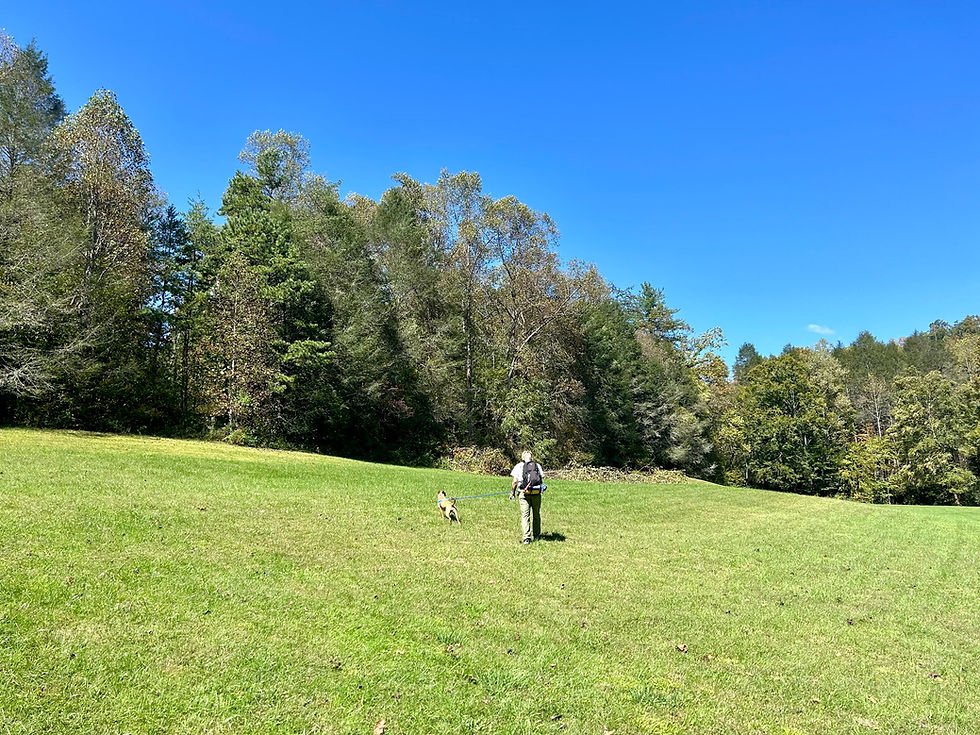
Our hike up our road was heavy. Not by weight but by the magnitude of our emotions. We passed the first home on our road, it had been built and stood their since the 1930’s, knocked off it’s foundation and battered by the flood. Beside it a huge mudslide had piled soil, trees and boulders filling and rerouting Rush Creek. Most of the road was gone. Like it had never been there before.

Below (center) the 1930's home at the beginning of our road
The photo top right, where the small culvert we'd crossed on our way out had been
Makeshift trails had been created by our neighbors since the storm, where they’d been hiking out looking for help. We saw elements of our garden almost as soon as we started hiking in. White oak boards, hoses, fittings and posts…laying in and along the creek. Halfway up we saw the debris of a well house and the expansion tank from it, a structure that had been halfway up the mountain, above our land, which had been displaced this far. There were downed trees everywhere, we had to climb over them, plus piles of mixed debris: limbs, rocks, mud and silt.
Emotions were mixed. Excitement to make it this far, dread to actually see our dreams shattered, altered and washed down river. But it was also a feeling I don’t quite know how to explain, setting eyes on our place, finally, after imagining the best and worst for days. Dealing with the unknown had hurt more than finally knowing what we would find at the end of the trail.
We approached our place, the last leg of the hike, and saw our red gate which had been at the end of our driveway where it met the road, 50 yards from where it had once stood, the two sections still chained together, but pressed against a tree in the middle of the stream and piled over with branches and trees. The stream flowed where our drive had been. We crossed over and walked up what had been our driveway. A small trickle of a spring normally, had become a creek and flowed down our drive, no longer crossing under it further above. The first 200 or so feet of our driveway has trees and shrubs along both sides, a beautiful canopy from Rush Creek Road that eventually opens to our meadow and fields.

What we found as we came out of that shaded entrance was wasn’t the beautiful fields and meadow we’d planted with wildflowers for the past two years, rather an enormous crater where our pond had breached and the torrent from the storm had torn away everything. Our concrete septic tank sat at the bottom, completely exposed, and in the middle of a small new stream that flowed below.
The pond itself had been filled with sand and silt, with piles of trees, whole huge trees, limbs and other debris piled at its’ edge. When it breached it washed away every bit of garden (we’d later collect pieces of it as far as a mile downstream), the whole hillside was gone and a crater, which we later measured at 65 feet wide and up to 25 feet deep, in its’ place.

The old 1950’s cabin was destroyed. There had been a landslide from the slope behind it, dropping trees on its’ roof and through the side. There had been a little stream that came down behind it, then entered an underground drainage pipe which led down to and emptied into our pond. It had been blocked behind the home, filled with soil and debris, routing the stream through the structure. The inside had been flooded during the storm and was filled with mud.

Trees had fallen on one of our barns, the stable actually, but somehow missed the workshop we’d spent the summer working on. We were thankful that it had survived, we’d likely be doing a lot of work from it in the months to come. The agony of uncertainty we’d had for almost a week, wondering what had happened and what was left of our place was gone, now replaced with the uncertainty of what lay ahead, how to even begin thinking of recovery.
We made our way through the carnage, taking it all in slowly, but also trying to comprehend what we were seeing. It was overwhelming. We got to our cabin. Other than the water now flowing directly beside it and undermining part of the deck, it looked strangely normal. We opened the door and walked in. It looked like the day we drove away, only a week before but what seemed like a year. It was so normal. Coffee cups sitting in the sink from the day we drove off, having no idea what was in store.
We didn’t stay long, we had to get back on the road, getting back out would take a couple hours and we didn’t want to do it in the dark. We cleaned everything out of the fridge and freezer, things were already starting to rot, and made a pile on the far side of our field. We couldn’t hike it out and figured the bears and other wildlife might appreciate the bounty.
We walked the rest of the property, taking in the damage, taking lots of photos and videos that we knew we’d stare at endlessly once home and trying to remember what we’d found. For me all emotion seemed just gone. I tried to take in what I was seeing, having known a bit of what we’d find, but it was hard. There was just too much. Looking back we were in shock. Where would we start when we finally could begin the process of recovery? It was obvious that it would be a long time before we’d be able to stay here again.

On our hike back out, right and the end of our driveway, we encountered a couple. They had a dog trotting along with them with the joyful attitude that a pup on hike has, playfully unaware of the burden the rest of us felt. They were heading out, visitors having arrived just before the storm to an AirBnb above us…for their honeymoon. We grabbed some of their luggage and gear and we all hiked out together.
Our conversation and attitude driving back to Charlotte was surprisingly lighter than it had been or I would have expected. While we had so much to take in and figure out, at least now we knew what we were facing. We’d made it in and could now begin what we knew was the next phase. Rebuilding. We immediately had switched over to planning and recovery mode, and that dominated our conversation.
Click here FOR PART III Post Hurricane Helene Rebuilding & Recovery
joey and scott - post hurricane helene aftermath
scott and joey linwell "joey and scott" linwell farms linwell falls at rush creek what's in the box contestants netflix hurricane helene joey hewell scott lindsley gay husbands


























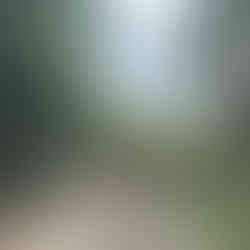


































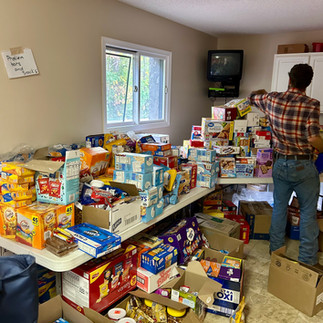

































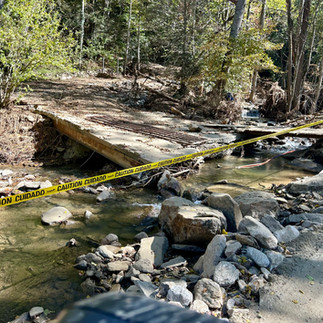

























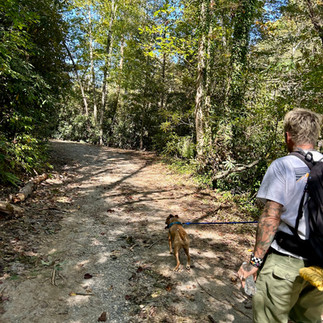























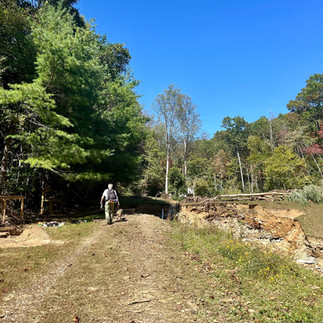





































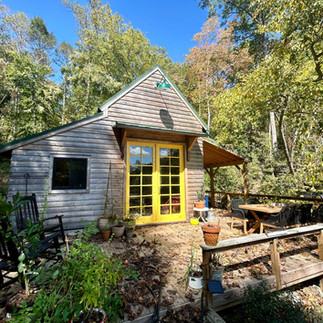














Comments